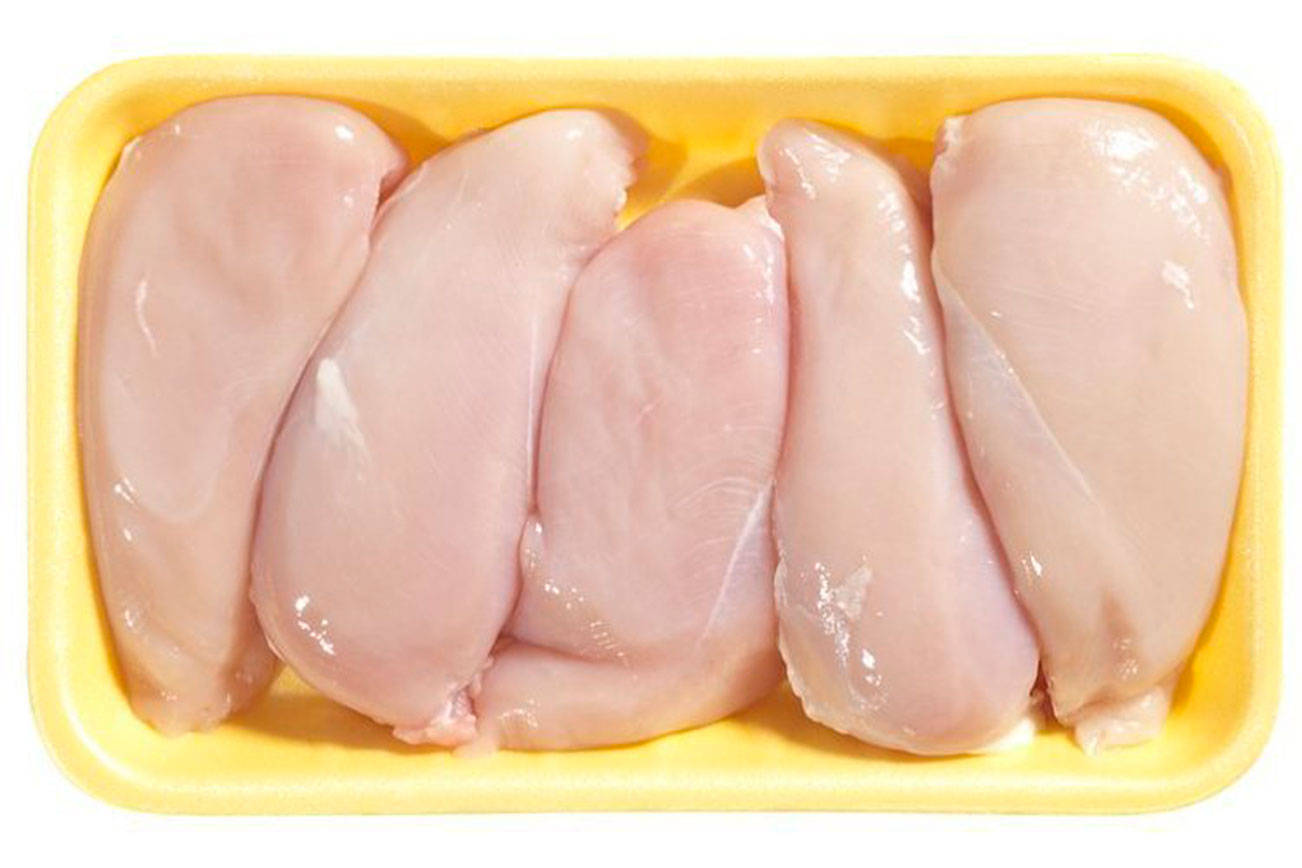The following was written for Public Health Insider:
September was National Food Safety Education Month, and to celebrate, we sat down with Dr. Eyob Mazengia, who specializes in food safety here at Public Health. We discussed a topic Eyob’s an expert in (he wrote his PhD dissertation on it!) – how to safely handle raw chicken in the home kitchen.
Q: Let’s start with something that’s received a lot of controversy recently – food safety guidance from the CDC says to not wash raw chicken before cooking because it could spread bacteria throughout your kitchen. Many people learned to wash chicken from their parents and grandparents, who didn’t get sick from the practice. Are you saying those family cooking methods are wrong?
EM: No! This is an example of cooking practices changing as our food system has changed.
The practice of washing raw chicken may have developed in a context when people were typically eating chicken they raised themselves, or bought live from a local market.
Today in the US, most chickens are raised on very large farms and come into contact with many other chickens, which increases the spread of Salmonella and Campylobacter bacteria. During processing, the meat passes through many different steps, which increases the risk for exposure to bacteria. All this means that the chicken you buy in the store are more likely to carry bacteria that can make you sick if handled improperly. In addition, the widespread use of antibiotics in farming has led to an increase in “multi-drug resistant” forms of Salmonella and Campylobacter bacteria that are harder to treat.
Q: Do you think buying organic chicken, instead of conventionally farmed chicken, reduces the risk of getting sick from chicken?
EM: Regardless of which type of chicken you buy, you should assume it carries Salmonella and Campylobacter bacteria. Tests show that locally, up to 30% of raw chicken test positive for Salmonella, whether it was raised on an organic or a conventional farm.
Q: If raw chicken is a potential source of harmful bacteria, why not wash it before cooking?
EM: By washing the meat, you risk spreading the bacteria throughout your kitchen without even noticing it. Washing chicken can splash bacteria up to three feet away from your sink and because you can’t see the bacteria, it’s very easy to then spread it all over your kitchen and home.
What’s more, washing the meat doesn’t kill the germs on the chicken. To kill bacteria, you should always cook chicken to an internal temperature of 165° F and use a thermometer to confirm this.
Q: Can’t you just wash the sink afterward to get rid of the bacteria?
EM: Thebacteria often splashes far outside the sink without you even realizing it. More than a million bacteria can fit into single drop of heavily contaminated water, so, even if you sanitize your sink after washing the chicken, the bacteria may have already spread throughout your kitchen but be invisible to you. Salmonella can remain active and reproduce on contaminated dry surfaces for weeks to months.
Q: Some people marinate chicken in lemon juice or vinegar before cooking. Does this help kill bacteria?
EM: Marinating chicken in citrus juice or vinegar may reduce the regrowth of bacteria, but it won’t effectively kill the bacteria already present on the chicken. When you’re handling chicken as part of the marination process, it’s important to avoid cross-contamination. Before removing the chicken from the package, prepare all of your marinade ingredients. Set your casserole dish on a surface that can be easily cleaned. Then, gently place the chicken in the marinade and immediately wash your hands (for 20 seconds, with soap and hot water) before touching anything else. And don’t forget to sanitize the counter top or the sink where you handled the raw chicken.
Q: Sometimes raw chicken is a little slimy or smelly. How do you deal with that if you don’t wash the meat?
EM: If you keep your chicken in the fridge for more than 24 hours after you buy it, it can develop a little bit of a film or smell. This doesn’t mean it’s dangerous to eat – typically, you can safely keep raw chicken in the fridge for up to 2 days. When you cook the chicken, this film will cook off. But, if the smell or film bothers you, I’d recommend dipping the chicken in boiling water for about 10-15 seconds. When putting the chicken in the boiling water, use tongs to hold the raw meat, and then thoroughly wash the tongs and your hands to remove bacteria. This will kill most of the bacteria and remove the film from the chicken with less risk of spreading harmful bacteria around the kitchen.
If you’re going to keep raw chicken for longer than 2 days before cooking, I’d suggest freezing it. A whole chicken can be safely kept in the freezer for up to a year, and chicken pieces can be safely kept in the freezer for up to 9 months. When you defrost the chicken, thaw it in the fridge rather than letting it sit in the sink because this method can allow the meat to become too warm and increase the number of bacteria. If you don’t have time to thaw it in the fridge, you can defrost it in the microwave. However, never cook your chicken in the microwave — microwaves don’t cook evenly so there’s a higher risk of bacteria not being killed.
Q: Any final advice?
EM: Yes! Salmonella and Campylobacter bacteria can even live on the outside of the chicken package. Therefore, keep the package separated from other foods, especially produce. Don’t set the package of chicken next to your other food in the grocery cart, and in the fridge, I recommend wrapping the package of chicken in a plastic bag to avoid cross contamination and leaks.



